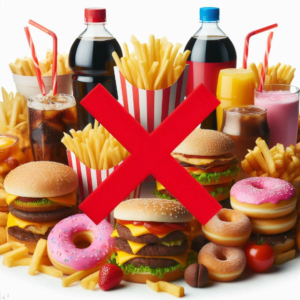Identify Foods That Disrupt Sleep Quality and Trigger Insomnia
A wide array of foods can severely disrupt your sleep patterns, making it increasingly difficult to attain the restorative rest your body requires for optimal functioning. But which foods are particularly infamous for negatively impacting sleep quality? In this comprehensive article, we will delve into some dietary choices that are known to contribute to insomnia and other sleep-related disorders, providing you with the knowledge to make informed decisions about your evening meals.
Living with insomnia involves not just the difficulty of falling asleep but also the challenge of maintaining a peaceful slumber throughout the night. The repercussions of inadequate sleep can leave you feeling utterly fatigued during the day, which can significantly impair your concentration and cognitive abilities. This lack of quality rest can adversely affect your mood, resilience, and even your overall immunity. Over time, chronic sleep deprivation can pave the way for a multitude of health issues and complications. While various factors contribute to insomnia, your diet plays a crucial role in this complex equation.
Examine the Effects of Caffeinated Beverages on Sleep Quality
Caffeine, a widely recognised psychoactive compound present in popular beverages like coffee, tea, and an array of energy drinks, can significantly impair your ability to both fall asleep and remain asleep. As a potent stimulant, caffeine complicates the initial process of dozing off and disrupts your sleep cycle by causing multiple awakenings during the night. In addition, caffeine functions as a diuretic, leading to frequent bathroom visits at night, which further interrupts your sleep. Since caffeine can linger in your system for several hours, it is advisable to avoid consuming it after midday to facilitate a more restful night. 
Investigate the Connection Between Caffeine Consumption and Anxiety Levels
Another vital factor to consider is the relationship between caffeine intake and anxiety. Caffeine stimulates the central nervous system, and while some may experience a temporary surge of energy, others may find themselves struggling with feelings of restlessness and jitteriness. This heightened state of anxiety can exacerbate insomnia symptoms. Research indicates that individuals dealing with chronic anxiety frequently exhibit insomnia symptoms, including difficulties in both falling asleep and staying asleep through the night. This creates a detrimental cycle of caffeine-induced anxiety that worsens existing sleep deprivation.
For those who grapple with anxiety, it is crucial to monitor caffeine consumption closely to mitigate additional sleep disruptions. Notably, studies have shown that women generally consume slightly less coffee than men but may experience a more pronounced increase in blood pressure due to caffeine intake. The link between elevated blood pressure and insomnia provides a compelling argument for eliminating caffeine from your diet.
Identify Caffeinated Foods That May Hinder Sleep
You may be surprised to learn that a variety of foods also contain caffeine. Items such as cocoa or chocolate (particularly dark chocolate) hold caffeine due to the presence of the compound theobromine. Furthermore, many common over-the-counter pain medications contain caffeine as a key ingredient. For those battling insomnia, it is advisable to take such medications before midday and to choose caffeine-free options later in the day. While moderate caffeine consumption has been associated with various health benefits, it is crucial to be mindful of your total daily intake to prevent adverse effects such as heightened anxiety and disrupted sleep. Instead of that late-night cup of cocoa, consider opting for a calming malted milk drink.
Another intriguing factor to consider is the potential influence of genetics on individual responses to caffeine. Variations in specific genes can significantly affect how even minimal amounts of caffeine can impact your sleep quality.
Your genetic inclination towards caffeine sensitivity is a critical factor that warrants attention. If you struggle to achieve restful sleep after consuming even a small quantity of caffeine, it may be worth exploring whether you possess a genetic trait that affects your reaction to this stimulant.
Moreover, if you are contending with insomnia, you might be tempted to consume coffee or energy drinks throughout the day to remain alert and focused. Unfortunately, this strategy can backfire, further disrupting your night-time sleep quality.
If you are experiencing insomnia, it is highly advisable to completely refrain from caffeine in the evening hours or ideally eliminate it entirely from your diet.
Assess the Effects of Spicy Foods on Sleep Quality
While there may not be a direct correlation between spicy foods and insomnia, these meals can indirectly contribute to sleep disturbances. This can occur as they often trigger heartburn and indigestion, both of which are frequently linked to difficulties in falling asleep.
If you are already suffering from heartburn or indigestion, reclining can exacerbate these issues. When you lie down, stomach acid can flow back into the throat, creating discomfort and pain as it irritates the sensitive lining of the oesophagus. Interestingly, consuming spicy foods, such as those seasoned with ginger, chilli, or pepper, can elevate your body temperature. Proper sleep hygiene suggests that cooler temperatures are more conducive to achieving restorative sleep, making anything that increases your body temperature a poor choice for those experiencing insomnia.
Consider the Possible Link Between Spicy Foods and Nightmares
Anecdotal evidence intimates that consuming spicy foods may influence sleep quality, leading to nightmares and unusual dreams. Although scientific studies have yet to validate this connection, there is evidence suggesting that increased body temperatures, akin to those experienced during a fever, can result in unsettling dreams. While this link remains somewhat tenuous, it may hold some truth. If you enjoy spicy dishes but find them troublesome in terms of disturbing dreams, it might be prudent to reconsider your evening meal choices!
Taking into account all the points discussed, if you are struggling with insomnia, it may be wise to avoid consuming spicy foods within three hours of bedtime.
Investigate the Effects of High-Fat Foods on Sleep Quality
Picture this scenario: you've had a fantastic night out, the bars are closing, and you decide to indulge in some tasty chips or perhaps a greasy kebab. While such a meal may seem inviting, especially after a few drinks, consuming a meal rich in fat close to bedtime is not advisable. Similar to spicy foods, meals high in fats, particularly saturated fats, can obstruct your ability to achieve quality sleep.
As you prepare to retire for the night, your digestive system instinctively slows down. Your body is designed to process food during daylight hours, not while you are asleep. Consequently, the absence of digestive enzymes and the sluggish nature of digestion at night can lead to discomfort. This discomfort can be exacerbated by lying down, as gravity does not assist in moving food through your digestive system. Therefore, eating high-fat foods shortly before bedtime can result in restlessness or awakenings due to stomach discomfort.
Furthermore, the time it takes to fall asleep, the overall quality of your sleep, and the restorative benefits derived from sleep can all be adversely affected by consuming fatty foods close to bedtime. Unfortunately, this negative impact can be even more pronounced in women!
A study has suggested that the metabolism of fatty foods may inhibit the release of melatonin, the essential sleep hormone. This intricate biological process involves the enzyme P-elF2α functioning within cells.
The crucial takeaway here is that if you are experiencing insomnia, it is prudent to avoid high-fat foods close to bedtime and ideally eliminate them entirely from your evening meals.
Understand the Detrimental Effects of Sugar on Sleep Quality
During the night, it is typical for individuals to refrain from eating, allowing the digestive system time to rest and regenerate. This period allows enzymes and hormones that facilitate digestion during the day to dismantle, effectively resetting your gut in preparation for the following day.
Recognise Why Sugary Foods Should Be Avoided in the Evening
For most individuals, the body maintains sufficient energy reserves in the form of fat, enabling it to survive for several hours without food. However, consuming a high-sugar or high-glycemic meal in the evening can prompt a sudden energy surge, resulting in feelings of being overly stimulated or ‘wired.'
The rapid spike of sugar into the bloodstream, followed by a swift decline, can induce feelings of hunger. This may create obstacles in falling asleep, as going to bed hungry is particularly undesirable, especially for those battling insomnia. The desire to consume more food can aggravate the issue of undigested food remaining in the gut at bedtime, leading to further indigestion and heartburn, similar to the effects of fatty foods.
Many individuals enjoy a warm milky drink before retiring for the night. If this is part of your nightly routine, it is advisable to avoid adding sugar, as it has been linked to negatively affecting the duration of your sleep.
Consuming sugary foods prior to bedtime can lead to restless sleep and unsettling dreams. If you wish to enjoy sweet dreams, it is wise to avoid sugar in the hours leading up to sleep.
If you are finding it challenging to sleep, you might not have considered that your dietary choices can significantly affect your sleep quality. While various foods can contribute to insomnia, caffeine, fats, sugars, and spices are the primary culprits. With this enhanced understanding of the foods that impact your sleep, you can take proactive measures to address your insomnia issues.
For further insights on enhancing sleep quality, you may find this article beneficial.
References
The Link Between Caffeine and Insomnia
How Processed Carbs Impact Your Sleep
The Relationship Between Food and Sleep Disturbances
The Article: Is Food Sabotaging Your Sleep? Change Your Diet to Improve Sleep appeared first on https://janestevensnutrition.com
The Article: Food Sabotaging Your Sleep? Revamp Your Diet for Better Rest appeared first on https://janestevens.net
The Article Revamp Your Diet for Better Sleep Quality Was Found On https://limitsofstrategy.com

